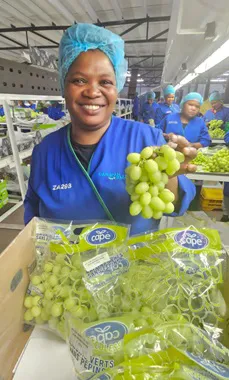 The 2024 South African grapes season will be remembered for the logistical nightmares that producers and exporters experienced at South African ports, and the challenge to ensure that grapes arrived at their destinations with the least amount of delay. Good marketing opportunities awaited in Europe for those who could deliver their fruit.
The 2024 South African grapes season will be remembered for the logistical nightmares that producers and exporters experienced at South African ports, and the challenge to ensure that grapes arrived at their destinations with the least amount of delay. Good marketing opportunities awaited in Europe for those who could deliver their fruit.
The season was a tale of ups and downs, of well-laid plans reaping results (shipping through Walvis Bay) or going totally awry (diverting grapes to Port Elizabeth).
During the infamous week 4 of this season, 22% more grapes were inspected in comparison to the same week the previous year, but shipping availability had not increased at all year-on-year. The grape industry reckoned that between 14 and 17 million cartons of grapes were stuck either in cold depots or in stack, waiting to be shipped.
"Due to a backlog created by wind delays and port inefficiencies in Cape Town, producers and exporters targeted a vessel that called on the Port Elizabeth port. The fruit was always destined to wait 10 to 14 days to load, but then that vessel got delayed by a further two weeks! These were the oldest grapes to have left South African shores for Europe this season," recounts Herman Redelinghuys, product manager: grapes at Capespan.
"What should have been a saving grace, instead turned into a challenge."
More breathing space in Europe
Due to the logistical delays, there were dry spells with no grape arrivals in the European market, interposed by a torrent of two or three vessels delivering grapes that were already older than in a normalized year. For example, during weeks 5 and 6, 16.2 million grape cartons were shipped, of which almost 9 million were Europe-bound.
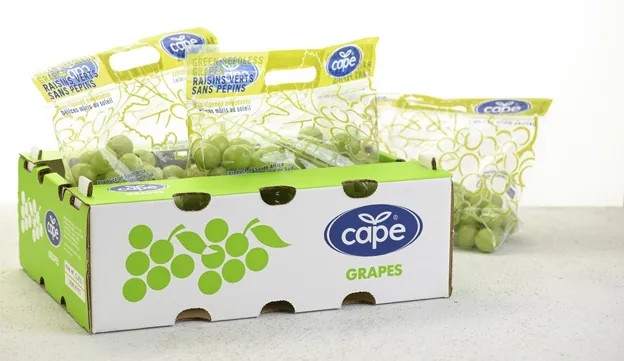
"The general rule of thumb is that Europe can absorb around three million cartons per week. Almost three weeks of stock was shipped in those two weeks and put a lot of pressure on the market."
Nevertheless, the European market has been strong throughout the season with price levels higher than last year. The situation has "normalized" in the last three weeks with prices more in line with last season.
"India's white seedless are traditionally lower priced than South Africa's but they weren't in the market until weeks 8 or 9, a month after their usual arrival time. This provides South African white seedless grapes the opportunity to sell at good prices," he says.
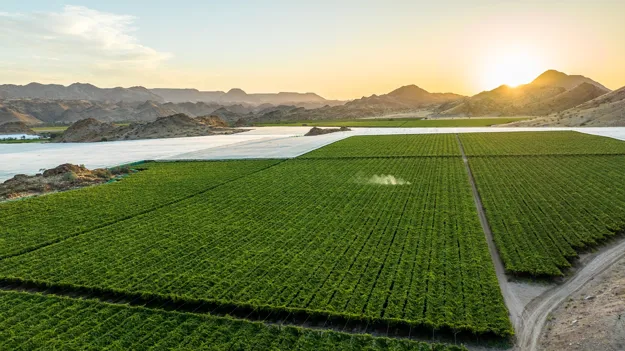
Arendsnes, one of Capespan's grape farms in Augrabies, Northern Cape
Walvis Bay a boon during the early campaign
The quality on Northern Cape and Namibian grapes was strong and three vessels departed from the Walvis Bay port during December and week 1. Thereafter it is impossibly expensive and far from the Western Cape, adding R30+ cost (1.46 euros) to each carton.
Walvis Bay is farther away than Cape Town for Namibian and Northern Cape grape growers too but, he explains, what you pay extra in landside logistical costs, you make up for in arrival quality.
"On the first two vessels our fruit were on average 23 to 27 days old upon arrival – like in a normal season. The fruit quality was streets ahead of anything else shipped from South Africa where the average fruit age of arrivals was 35 days and older."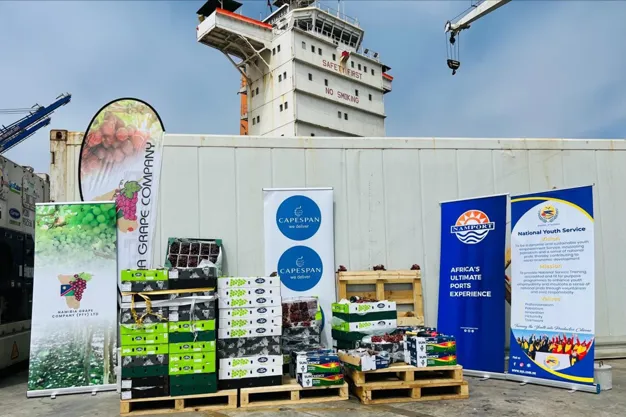 A felicitous partnership between Capespan, Namibian Grape Company and Namport, the Namibian ports authority
A felicitous partnership between Capespan, Namibian Grape Company and Namport, the Namibian ports authority
Missing Chinese New Year by a hair
Chinese New Year was later this year, buying the industry more time. Capespan has strong customer relationships in Vietnam and mostly the grapes are irradiated and flown over (by sea cold steri is required), but it has been challenging this year, Redelinghuys remarks.
"One specific vessel that was targeted for pre-Chinese New Year arrival, due to port delays in Durban, only arrived at the start of Chinese New Year when most people were already on holiday."
The grapes were unloaded but sales could only resume ten days later. The vessel not arriving in time for the Chinese New Year will, he remarks, prove costly for everyone with fruit on that vessel.
Meanwhile, Indian producers were targeting Malaysia due to their delays with shipments to Europe, and it resulted in that market coming under heavy pressure. "From early in the season between India and China, a lot of fruit was shipped to various Asian markets which put pressure on pricing levels."
Capespan sent no grapes to China this year and as a whole, industry volumes destined for China were down year to date. About 1.2 million cartons have been earmarked for China to date, compared to the almost two million cartons by this time last year.
75% more grapes to North America
The United States market, specifically, grew strongly from a low base, and presented attractive opportunities to South African growers this season.
"Peru was 20% down on their crop and we as Capespan sent 75% more grapes to North America than in the previous year. The market never really came under pressure. We had to ensure good quality products in he USA as substandard products can cost you a lot of money there."
Larger volumes have gone to Russia year on year. The Russian market remained a solid proposition with easy 4.5kg loose packaging, but the better prices were to be found in Europe this season.
Redelinghuys observes that on Namibian and Northern Cape farms it's been a good season in terms of revenue.
As the season moved southwards to the Western Cape, the grape market became increasingly more difficult. Once again, the Hex River Valley received summer rainfall over the Christmas period, which negatively affected the quality on some varieties.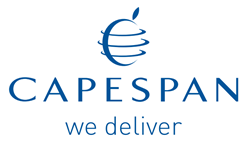 For more information:
For more information:
Herman Redelinghuys
Capespan
Tel: +27 21 917 2600
Email: [email protected]
https://www.capespan.com/
